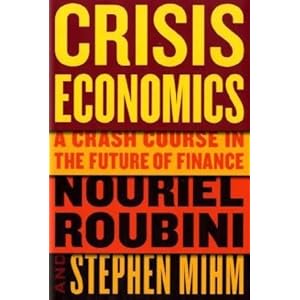 RIP Danny. Thank you for your insights and stories. I’m glad of the opportunity to know your work. You made a difference.
RIP Danny. Thank you for your insights and stories. I’m glad of the opportunity to know your work. You made a difference.
[Update 9/8/2010 A paper Danny co-authored, “Income’s Influence on Happiness” has just been released.]
… the bat costs $1 more than the ball. How much does the ball cost? Daniel Kahneman KNOWS that the first thought that entered your head was $.10–even if you’re a Computer Science major at MIT. But that’s the wrong answer.
Daniel Gilbert’s “Stumbling On Happiness” led me to Nicholas Taleb’s “Fooled By Randomness“. Both books cite the work of Danny Kahneman. I blogged a bit about him here. I have been rummaging around the internet looking for whatever I can find on Danny and his work and have come up with some excellent content. But let me give you a taste of the sort of fascinating facts you’ll hear in Danny’s lectures first.
In a study Danny (I don’t know him personally but after listening to all these lectures, I feel as though I do. He could no doubt name the cognitive bias this suggests) mentions in one of his talks, people are asked how much pleasure they derive from their car. They are then asked enough questions about the car to determine its blue book (resale) value. It turns out that there IS a correlation between the amount of pleasure the subject reported and the dollar value of the car. i.e. Yes, that late model BMW in the garage DOES give you more pleasure than my 20 year old Honda would. BUT! They then go on to ask the subject if they find their commute to work pleasurable, and guess what?– nobody does!. It turns out that the ONLY time people derive pleasure from their car is when they are THINKING about it.
From Wikipedia:
With Amos Tversky (Kahneman’s longtime research partner, with whom he would have shared the Nobel prize had Tversky not died in 1996) and others, Kahneman established a cognitive basis for common human errors using heuristics and biases (Kahneman & Tversky, 1973, Kahneman, Slovic & Tversky, 1982), and developed Prospect theory (Kahneman & Tversky, 1979). He was awarded the 2002 the Nobel Prize in Economics for his work in Prospect theory.
Major Contributions:
- anchoring and adjustment -describes the common human tendency to rely too heavily, or “anchor,” on one trait or piece of information when making decisions.
- availability heuristic -where people base their prediction of the frequency of an event or the proportion within a population based on how easily an example can be brought to mind.
- conjunction fallacy -when it is assumed that specific conditions are more probable than a general condition that contains the specific condition. (i.e. You think you’re MORE likely to die in an air disaster brought on by a terrorist event, than you are to die in ANY kind of air disaster).
- framing (economics) -reversals of preference when the same problem is presented in different ways. (10% fat vs. 90% fat-free!)
- loss aversion -the tendency for people strongly to prefer avoiding losses than acquiring gains. (Why New Yorkers stay in New York for the culture, and Angelenos stay in LA for the weather!!).
- peak-end rule – we judge our past experiences almost entirely on how they were at their peak (pleasant or unpleasant) and how they ended.
- prospect theory -how people make choices in situations where they have to decide between alternatives that involve risk.
- reference class forecasting -predicts the outcome of a planned action based on actual outcomes in a reference class of similar actions.
- simulation heuristic – people determine the likelihood of an event based on how easy it is to picture mentally. (Why we buy lottery tickets.)
- status quo bias -in other words, people like things to stay relatively the same.
Media – Most of these lectures have a fairly long-winded intro. Skip ahead if you don’t need the background info.
Explorations of the Mind – Well-Being: Living and Thinking About It. (YouTube)
Conversation With History – Intuition and Rationality. (YouTube)
Conversation With History – Intuition and Rationality. (Audio)
Explorations of the Mind – Intuition: The Marvels and the Flaws. (YouTube)
Nobel Prize Lecture. (YouTube)
Update March 2009- Kahneman and Taleb on the same stage discus the crash. (YouTube)
Update March 2010. From the February 2010, Ted Talk Daniel Kahneman: The riddle of experience vs. memory. (YouTube)
Found a few more DK links.
A Perspective on Judgment and Choice 24pg. PDF doc. on the subject of his Nobel Prize.
The Allais Paradox Wired magazine 10/10 (Archive)
.

